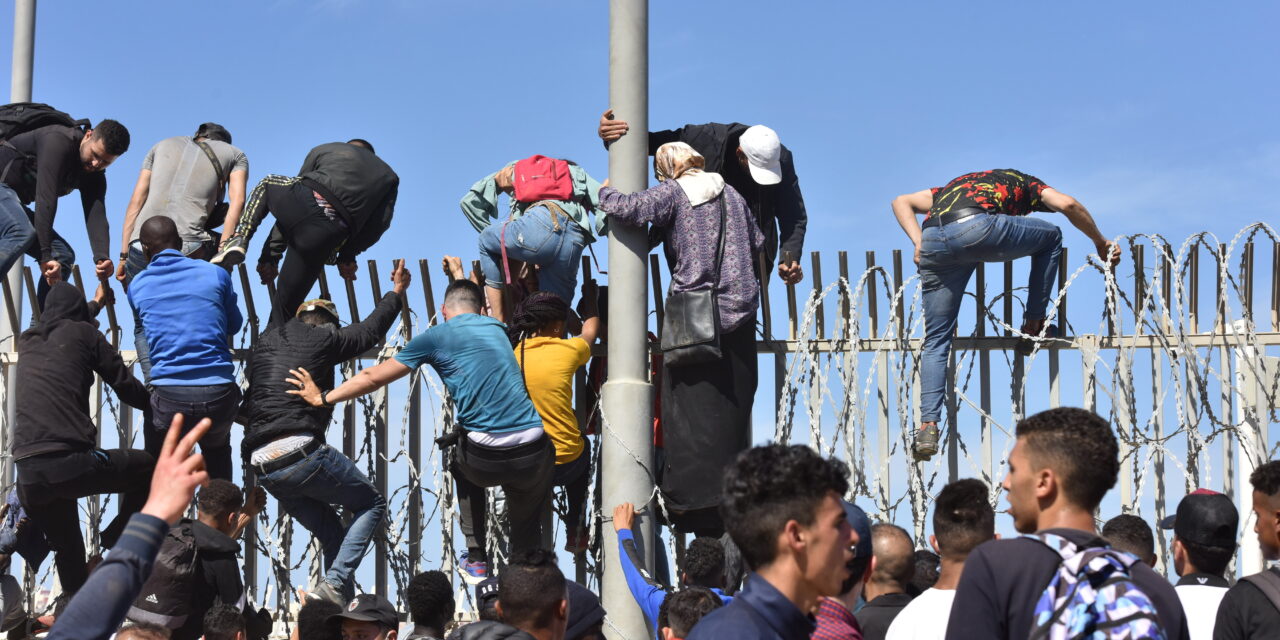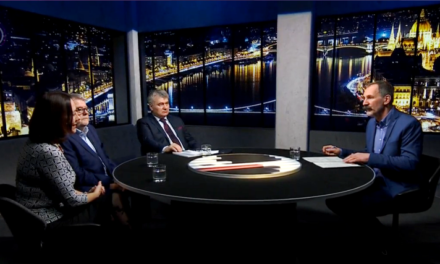The "European solution" richly imbued with ideology - behind the guise of human rights reasoning - mostly only treats the person as a commodity along with his identity.
In the matter of the Migration Pact, the professional and political front lines became rigid years ago - one side using decisive action against illegal migration, the other the basic tenets of the vision of an open society as mortar for its trenches. Based on the first reactions, it is also clear that, despite all promises and bombastic statements to the contrary, it is not this pact (whose faramuci name comes from the fact that it is a translated and stylized version of the UN Global Compact for Migration) that will bring the positions together in some way towards reconciliation.
At least three member states, Hungary, Poland and Slovakia, immediately declared at the highest political level that this would not be implemented in practice;
and in the case of many other countries, there is a good chance that the conformity and conflict avoidance shown during decision-making will turn into a hopeless cascade of small-scale implementation sabotages. Which - let's face it - would be far from a unique story in the history of European law enforcement, which is often dotted with infringement procedures.
These reactions can be understood in the light of the accepted "historical results", since the rules of detail will mostly only make the reader smile awkwardly or laugh mockingly. The third world masses aspiring to the European Eldorado will of course not be deterred from their goal in the slightest by the fact that from now on the data collection procedure must be completed within seven days, including the herculean task of taking fingerprints.
Legislation adopted to speed up deportation procedures enriches the category of the worst written malast,
since someone can only be expelled somewhere, with appropriate documentation (including personal documents) and compliance with the relevant procedural rules. In the case of those arriving without papers, the burden of proof is not on the country of origin, but on the country of arrival. If the country of origin denies its citizen (and since it is not exactly an EU-compliant public administration system - if there is any public administration at all - this is a simple exercise), the solution to the puzzle is impossible. The new rules are therefore unable, even in principle, to make a meaningful change in the checkmate situation that paralyzes the administrations of the member states.
Until now, the engine room noise of the current political squirrel wheel,
but by looking under the cover sheet, let's also try to find an answer to what lies in the deeper layers below the chattering surface.
It is a commonplace that Europe, as well as the European Union and its member states, have been in a deep demographic crisis for a long time. The process has been going on for decades, and even with the best intentions and many measures, slowing down the weight loss is the most that can be achieved. This has unpleasant consequences on the labor market, and its impact on the social security systems that form the backbone of European welfare societies is downright catastrophic. Regarding the proposed solutions, there are two schools of thought: one focuses on automation (and thus the replacement of human labor), the other on immigration. An example of the former is the Far East: Japan (and increasingly China), the latter is the Western world in the broadest sense, including Australia and New Zealand.
However, even in the case of the point of view that accepts immigration as necessary, the practical implementation diverges in two directions: according to one school, the immigrant is not a tabula rasa, but a person(s) with a history, personality, worldview and prejudices, who must be actively integrated into society. Due to their genesis, immigrant countries - especially the USA, the paradigm host - follow this principle, while at the same time, the woke mind virus has made big holes in the meantime, and not much help can be expected from it on a global level anyway.
On the other hand, the "European solution", which is richly imbued with ideology - behind the mask of human rights reasoning - mostly only treats the person as a commodity along with his identity,
and would push people here and there in the midst of social engineering on a global, or at least continental scale. If half a million Uncle Hanzi retires next year at the age of sixty-seven, then the next day they will be replaced by half a million newly arrived Europeans, who will immediately and without problems change their identities, train both linguistically and professionally, and then everything will go on smoothly, just like in Dr. Brinkmann's clinic in the Black Forest. Oh, sancta simplicitas.
And there is also an interesting legal question. The principle dating back to the Romans is that you cannot base a right on infringement. In the wording of the Civil Code: "No one may rely on his reprehensible conduct in order to obtain advantages."
And that is exactly what is happening here - provided that we continue to classify illegal entry as an illegal act.
This has two concrete consequences: the first is that it is relatively difficult to assume that a person who starts his European career with a major violation of law will suddenly become enlightened and cooperate with the authorities in everything (which, by the way, is a basic duty for refugees under both the Geneva Convention and Hungarian regulations). The second is that the development of a world of rights based on violation of law necessarily causes serious tensions in the host societies, when masses of law-abiding citizens ask themselves the question: why should I be fair? There are concrete, sad and worsening signs of both phenomena throughout the European Union. The legislative package adopted by the Parliament is clearly unsuitable for mitigating both the processes and the consequences.
Migration is to social geography what wind is to natural geography – if the pressure is low somewhere and high elsewhere, sooner or later the flow will start towards the lower pressure area.
However, in terms of demographics, the pressure in Europe has been extremely low for decades, so it is not worth being surprised or taking the position of complete rejection. We have already integrated Kunt and Peseny, Swabian and Saxon, Rácot-Sokác-Bünyévac: it is enough to look at the Hungarian family name palette, examining the frequency of occurrence of Németh, Horváth, Tóth, Rácz, Török and other surnames indicating origin. Therefore, we have every reason to face new challenges with confidence, always keeping in mind that integration is basically a mathematical issue. Because if we cast our watchful gaze in the western direction, it is clearly visible that with the proportions turned upside down, there is no question of who integrates whom in the end. Late descendants of Sioux, Iroquois, Dakotas, Lakotas, Cherokees and other North American Indians could tell a lot about this.
Featured image: Moroccan illegal immigrants climb over the border fence of Ceuta, a Spanish enclave in North Africa wedged into Moroccan territory, on May 18, 2021. In one day, more than 6,000 people illegally entered the territory of Ceuta from Morocco. Spanish Prime Minister Pedro Sánchez announced that he will use all necessary means to protect the territorial integrity and borders of Spain, which are also the external borders of the European Union. MTI/EPA-EFE/Dzalal Morcsidi












